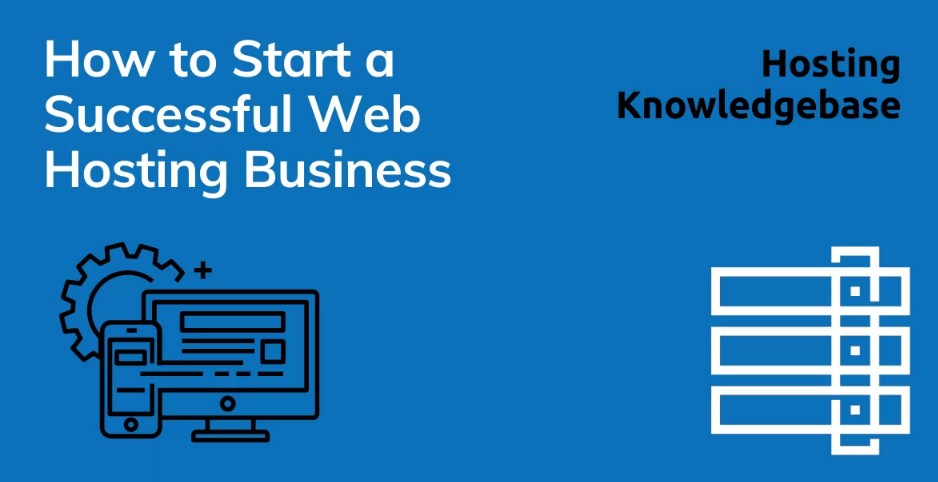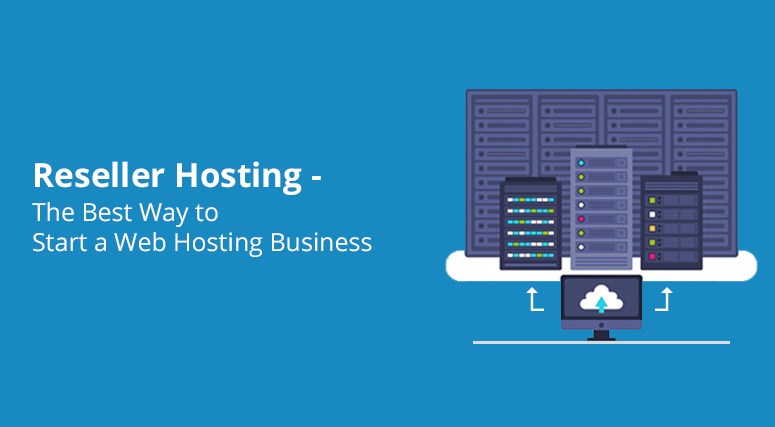How to Start a Hosting Business – Starting a hosting business can be a lucrative venture, especially in a world that is increasingly reliant on digital solutions. Whether you’re aiming to offer web hosting services for small businesses, developers, or enterprises, the demand for reliable hosting providers continues to rise. In this comprehensive guide, we will walk you through the steps on how to start a hosting business from scratch, explore the key benefits of doing so, and introduce you to top products and services that can help you build a successful hosting company.

Why Start a Hosting Business?
With more businesses going online and increasing reliance on websites, apps, and cloud services, the web hosting industry has seen significant growth. Starting a hosting business offers a chance to tap into this market, and if done right, it can turn into a profitable enterprise. Let’s take a closer look at the main benefits:
- High Demand: The growing number of online businesses and e-commerce platforms needs reliable hosting.
- Scalable: Hosting businesses can scale rapidly, offering tiered services to meet the needs of various customers.
- Recurring Revenue: Hosting services often come with subscription-based models, providing stable, recurring income.
With all this in mind, let’s dive into the steps to successfully launch a hosting business.
Steps to Start a Hosting Business
1. Choose Your Niche
The hosting industry is broad, and there are different types of hosting to cater to various businesses:
- Shared Hosting: Ideal for beginners and small businesses.
- VPS Hosting: Offers more control and is suitable for mid-sized companies.
- Dedicated Hosting: Best for large enterprises that need custom configurations and high performance.
- Cloud Hosting: Scalable and flexible, ideal for businesses that expect rapid growth.
💡 Tip: Focus on one niche initially and expand later as your business grows.
2. Select a Web Hosting Provider or Set Up Your Own Infrastructure
One of the most important steps is to choose the right hosting platform. You can either buy hosting servers and set up your own infrastructure or partner with an established hosting provider. The latter may be more cost-effective and less risky for a new business owner.

Top Hosting Providers to Consider
Here are five hosting services that can help you kickstart your hosting business:
- HostGator: Offers reseller hosting services, which is a great option for starting your own hosting business.
- Bluehost: Known for their solid performance and excellent support.
- SiteGround: Provides high-quality hosting with great scalability.
- A2 Hosting: Known for high-speed performance and customer satisfaction.
- InMotion Hosting: Excellent for both shared and VPS hosting options.
3. Define Your Hosting Services
You’ll need to decide on the kind of hosting plans you will offer to your customers. It’s best to start with basic packages and later introduce advanced plans like VPS or dedicated hosting. Your options should be competitive in pricing and features.
| Hosting Plan | Features | Price | Best For |
|---|---|---|---|
| Shared Hosting | Shared resources, cost-effective | $2.95/month | Small websites, blogs, startups |
| VPS Hosting | Dedicated resources, more flexibility | $19.99/month | Medium-sized businesses |
| Dedicated Hosting | Full control, high-performance servers | $79.99/month | Large enterprises, e-commerce |
| Cloud Hosting | Scalable resources, pay-as-you-grow pricing | $5.99/month | Growing businesses, apps |
4. Build Your Website and Branding
Your website is your storefront. Ensure that your website is professional, user-friendly, and optimized for both speed and search engines. Include clear pricing, service descriptions, and testimonials if available.
5. Launch and Market Your Hosting Business
Once your hosting services are set up, it’s time to market your business. Consider these strategies:
- SEO Optimization: Make sure your site ranks well for terms like “affordable hosting,” “reliable hosting services,” and “best hosting providers.”
- Social Media: Use platforms like Facebook, Twitter, and LinkedIn to promote your hosting services.
- Affiliate Marketing: Partner with bloggers and influencers to promote your hosting business.
Product Comparison for Hosting Solutions
Let’s take a closer look at five hosting products you might want to consider, including their benefits, use cases, and pricing.
1. HostGator Reseller Hosting
- Use Case: Great for starting a hosting business without buying physical servers.
- Pros: Affordable, scalable, 24/7 customer support.
- Cons: Limited advanced features.
- Price: Starts at $19.95/month.
- Features: Unlimited disk space, email accounts, free billing software, and white-label options.
Visit HostGator
2. Bluehost VPS Hosting
- Use Case: Ideal for growing businesses that need more control and better performance.
- Pros: Highly scalable, reliable uptime.
- Cons: More expensive than shared hosting.
- Price: Starts at $19.99/month.
- Features: Full root access, customizable server configurations, free domain for the first year.
Visit Bluehost
3. SiteGround Cloud Hosting
- Use Case: Best for businesses with fluctuating demands that need easy scalability.
- Pros: Excellent customer support, free daily backups.
- Cons: Pricing can be a bit higher than others.
- Price: Starts at $80/month.
- Features: 24/7 support, multiple data centers, free CDN and SSL.
Visit SiteGround
4. A2 Hosting Dedicated Hosting
- Use Case: Ideal for large businesses with high traffic and resource needs.
- Pros: Excellent speed performance, full server control.
- Cons: Higher cost compared to other plans.
- Price: Starts at $99.99/month.
- Features: Managed services, Turbo Servers for faster page loads, 24/7 support.
Visit A2 Hosting
5. InMotion Hosting VPS Hosting
- Use Case: Excellent for developers who want more control over their hosting environment.
- Pros: 90-day money-back guarantee, fast and secure.
- Cons: Slightly more expensive than standard VPS options.
- Price: Starts at $29.99/month.
- Features: Free SSDs, advanced security features, and optimized for performance.
Visit InMotion Hosting
How to Buy Hosting Services
You can purchase hosting services directly from any of the platforms mentioned above. The process is simple:
- Select the Plan: Choose a hosting plan based on your requirements (e.g., shared, VPS, cloud).
- Sign Up: Create an account with the provider.
- Make Payment: Complete your payment process via credit card, PayPal, or other options.
- Activate and Set Up: Follow the platform’s guide to set up your hosting account.
FAQs:
1. What is the best hosting plan for beginners?
- Shared hosting is typically the most affordable and beginner-friendly option.
2. Do I need to buy a domain name separately?
- Most hosting providers offer domain registration along with your hosting plan.
3. What are the benefits of cloud hosting?
- Cloud hosting offers flexibility, scalability, and the ability to pay only for the resources you use.
4. How much money do I need to start a hosting business?
- You can start a hosting business for as low as $20-$50 per month for reseller hosting services.
5. Can I resell hosting services under my own brand?
- Yes, reseller hosting plans allow you to rebrand hosting services and sell them under your own business name.
Starting a hosting business in 2025 can be a rewarding journey if you follow the right steps and use the right products. By choosing a reliable hosting provider, defining your services, and effectively marketing your business, you can set yourself up for success.
Read More >>>
- How to Manage Windows Firewall on Server Core: Expert Tips, Products & Solutions
- How to Manage Windows Server Core: Best Tools, Benefits, and Buying Guide